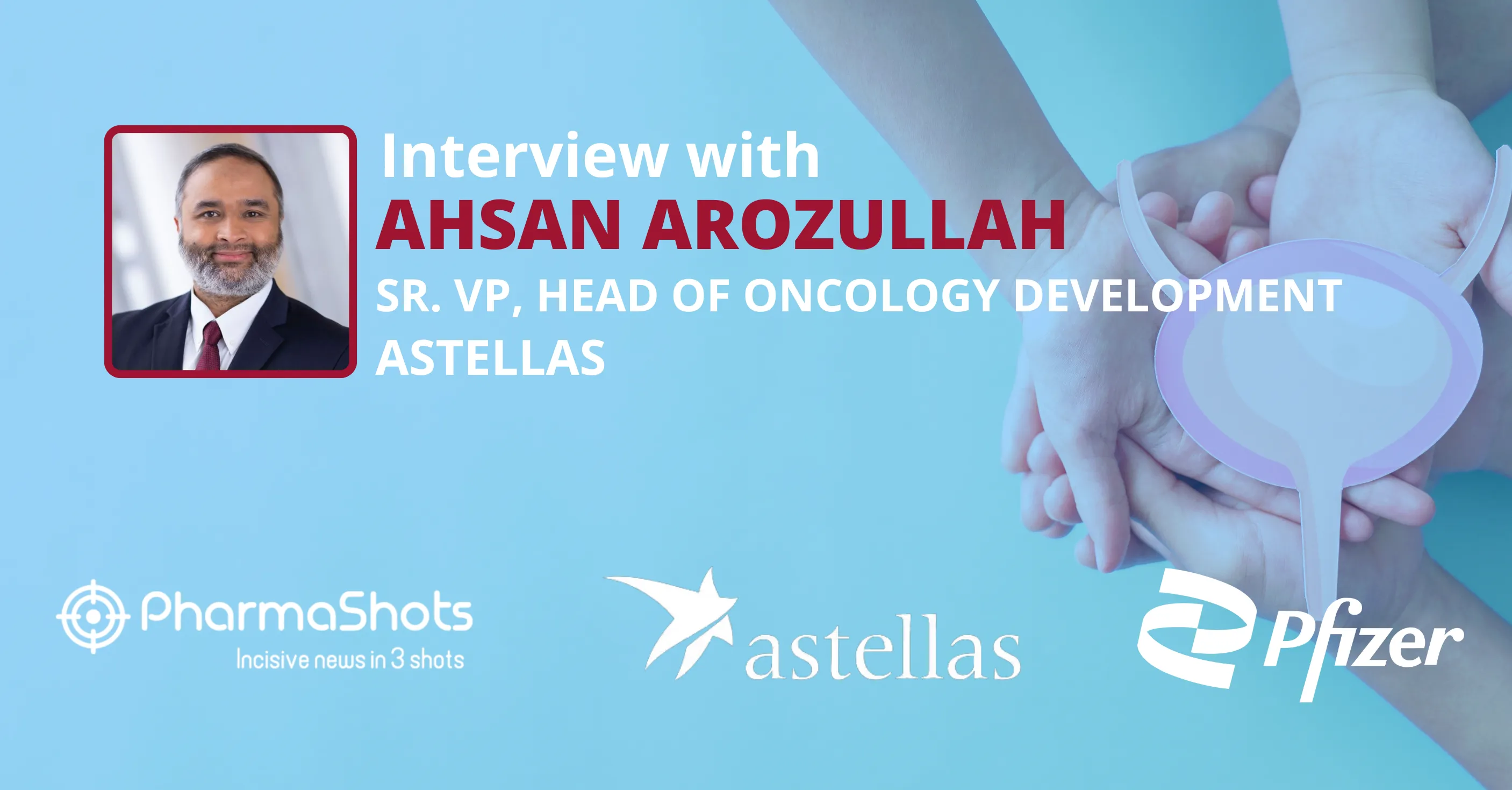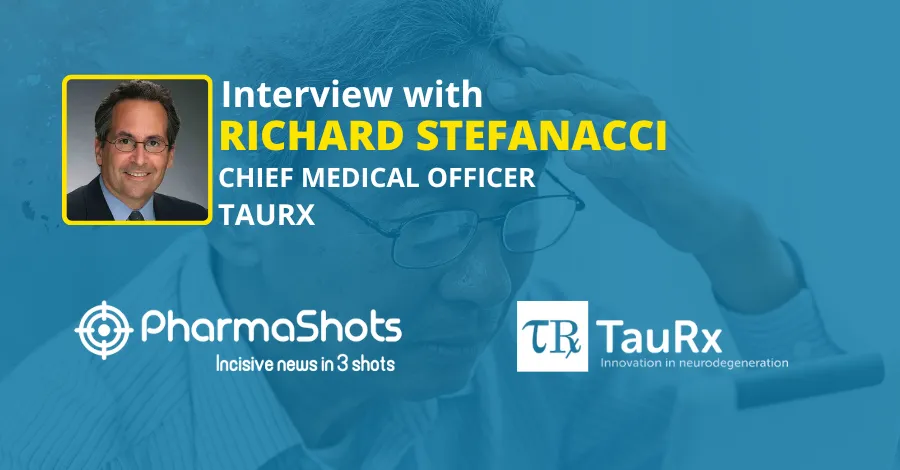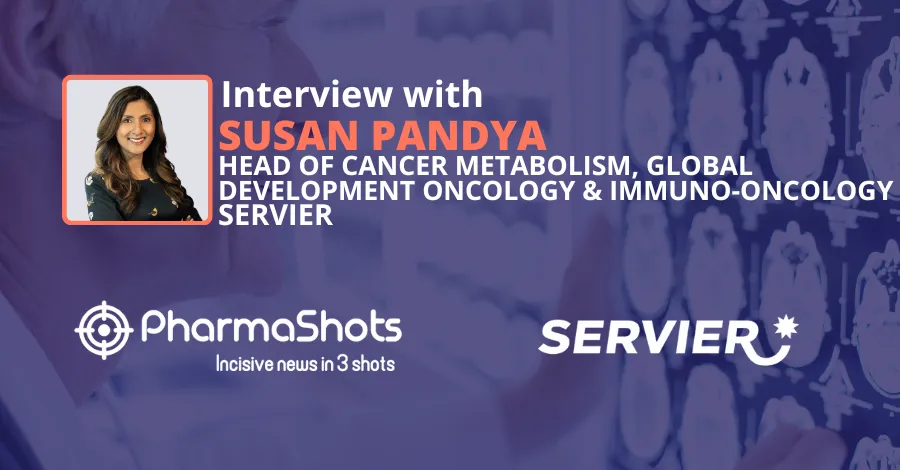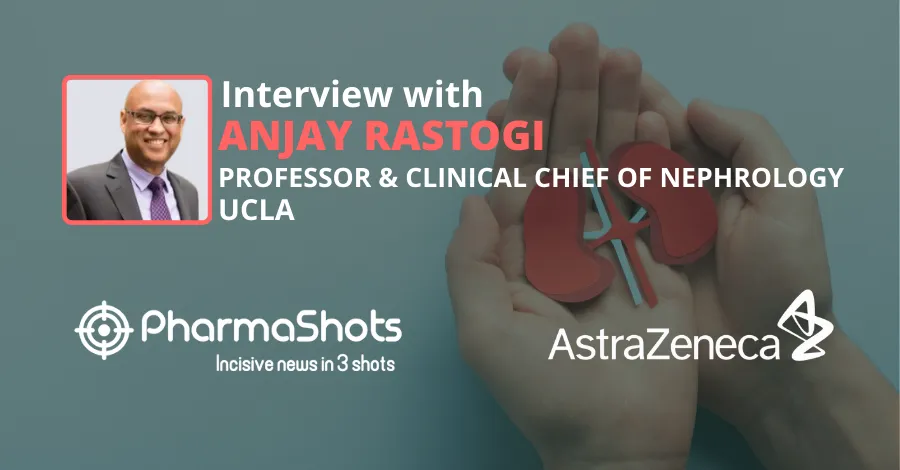
PharmaShots Interview: Rain Therapeutic's Avanish Vellanki Shares Insight on the Initiation of P-III MANTRA Trial of Milademetan for Dedifferentiated Liposarcoma
In an interview with PharmaShots, Avanish Vellanki, CEO and Cofounder at Rain Therapeutics shared his views on the initiation of the P-III MANTRA trial to evaluate the safety & efficacy of Milademetan for dedifferentiated liposarcoma and provide updates about the company's lead candidate, RAIN-32.
Shots:
- The company initiates P-III MANTRA trial to evaluate safety & efficacy of milademetan vs trabectedin in a ratio (1:1) in 160 patients with unresectable or metastatic DD LPS with or without WD LPS that have progressed on one or more prior systematic therapies including at least 1 anthracycline-based therapy
- The 1EPs of a trial is PFS, as assessed by blinded independent review & 2EPs, include OS, ORR, DoR, DCE & investigator-assessed PFS along with safety & PRO's
- The company also provides patients update continuing to receive RAIN-32 as monothx. from the previously completed P-I dose-escalation & expansion study. Additionally, the therapy has received FDA's ODD for LPS
Tuba: Discuss the design of the P-III MANTRA study for DDLPS.
Avanish: The MANTRA trial (NCT04979442) is a randomized, multicenter, open-label, Phase 3 registrational study designed to evaluate the safety and efficacy of milademetan compared to trabectedin, a current standard of care in patients with unresectable or metastatic de-differentiated (DD) liposarcoma (LPS) with or without a well-differentiated (WD) LPS component that has progressed on one or more prior systematic therapies, including at least one anthracycline-based therapy.
Approximately 160 patients are expected to be randomized in a 1:1 ratio to receive milademetan or trabectedin. The primary objective of the trial is to compare progression-free survival (PFS) by blinded independent review between the milademetan treatment arm and the trabectedin control arm. Secondary endpoints include overall survival, PFS by investigator assessment, objective response rate, duration of response, disease control rate, safety and patient-reported outcomes.
Tuba: What makes milademetan unique? Discuss it on behalf of its MoA and other features.
Avanish: Milademetan is an oral small-molecule inhibitor of mouse double minute 2 (MDM2) which is oncogenic in numerous cancers. MDM2 is a critical regulator of tumor protein 53 (p53), also known as the 'guardian of the genome' because it regulates the cell cycle and is therefore essential for tumor suppression. If MDM2 is overexpressed, p53 can be inactivated, leading to tumor growth and cancer progression. MDM2 inhibition by, milademetan may lead to the reactivation of p53, which can then resume its role in controlling cancer growth. In contrast to many prior generation MDM2 inhibitors, we believe milademetan does not exhibit material drug accumulation in tissues and therefore enabled an optimal dose schedule for efficacy and safety. We believe that a rationally designed dosing schedule in the prior clinical trial takes advantage of these properties of milademetan to demonstrate a potentially more favorable efficacy and safety versus competing for MDM2 programs.
Milademetan received U.S. Food and Drug Administration orphan drug designation for patients with LPS and has already demonstrated antitumor activity in an MDM2-amplified subtype of LPS and other solid tumors in Phase 1 clinical trial, potentially validating a rationally designed dosing schedule to mitigate safety concerns and widen the therapeutic window of MDM2 inhibition.
Tuba: What are your other plans with milademetan? Are you planning to explore its potential in other indications as well?
Avanish: In addition to the ongoing Phase 3 clinical trial evaluating milademetan in patients with LPS, we anticipate exploring several other MDM2-dependent tumors as a monotherapy, as well as a multitude of tumors with wild-type p53 in combination with other agents, leveraging the safety profile of milademetan. In the near term, we plan to commence a Phase 2 tumor-agnostic basket trial in certain solid tumors in the second half of 2021 and a Phase 2 trial in intimal sarcoma by early 2022.
Tuba: Share the details about DDLPS with our readers. Discuss its epidemiology and symptoms.
Avanish: WD and DD LPS are two of the four subtypes comprising LPS, and together account for two-thirds of the overall LPS population. WD LPS is less aggressive and tends to be a large painless mass found in deeper tissues, however, DD LPS is more aggressive, arising from WD LPS, and is usually found in the tissue behind the abdominal area or the extremities. Both WD and DD LPS exhibit amplification of the MDM2 gene with nearly a 100% frequency, and hence are rational opportunities for treatment with MDM2 inhibition.
The incidence of LPS is estimated at approximately 3,000 patients annually in the U.S. for which there are few effective treatment options with WD and DD LPS comprising about two-thirds of the total LPS population.1 While the symptoms of LPS depend on where the tumor is located, patients may at first notice a new or growing lump that may be painful.2
Tuba: Do you feel competition in this space? If yes, who are they and how will milademetan create a difference with others?
Avanish: We believe we are leaders within the space given an ongoing Phase 3 pivotal study in DD LPS with an efficacy and safety profile from prior clinical studies that differentiate us from others. We believe milademetan could be the best-in-class MDM2 inhibitor. We intend to leverage the unique therapeutic window differences of milademetan versus the other programs by embarking on a broad and extensive clinical development program. We believe additional clinical studies will help to highlight the potential of milademetan across various MDM2-dependent and wildtype TP53 tumors.
Tuba: What makes you work on precision medicine for patients suffering from cancer?
Avanish: The recent advancements in cancer research and drug development allow for an unprecedented degree of insight into the critical drivers of cancer growth and its associated signaling networks and vulnerabilities. Our vision is to help cancer patients live life to the fullest. To make this a reality, we have assembled a relentless team who is unshaken by obstacles, fiercely aware that someone needs us now, and is committed to harnessing tumor biology to develop vanguard therapies to treat patients.
Overall, the Rain strategy is aimed at giving patients and their families their lives back. Finding new targeted treatment options for these patients is the essence of our work and patients are our inspiration. Patients guide our development of new treatment options that have the potential to be not only more effective but also preserve the quality of life. It is our ultimate goal to provide patients with effective treatment options that are not characterized by the unwanted side effects that are so common with most cancer treatments.
Tuba: Are you open to collaborations to offer precision therapies to more patients?
Avanish: We are always open to new collaborations to advance our precision oncology pipeline with partners that share our mission of developing and implementing innovative precision medicine strategies for patients suffering from cancer, and their families.
Tuba: What are the company's near-term plans? Share your achievements with our readers.
Avanish: In addition to the recent initiation of our Phase 3 MANTRA clinical trial, we recently provided an update from the Phase 1 dose-escalation and expansion study evaluating milademetan across four-dose schedules in patients with LPS, solid tumors or lymphomas. As of July 1, 2021, three WD/DD LPS patients received therapy with milademetan monotherapy for greater than 51 months. Further, we completed an initial public offering for Rain in April of this year that enables meaningful capital support to generate data for milademetan across a variety of MDM2-dependent tumor indications. We also plan to commence a Phase 2 tumor-agnostic basket trial in certain solid tumors in the second half of 2021 and a Phase 2 trial in intimal sarcoma by early 2022.
We look forward to collaborating with several partners and hope to present results from our ongoing research for milademetan and the RAD52 program at upcoming conferences.
Image Source: Hackensack Meridian Health
References:
- Manji GA, Schwartz GK. Managing Liposarcomas: Cutting Through the Fat. J Oncol Pract. 2016 Mar;12(3):221-7.
- Retrieved from: https://www.webmd.com/cancer/what-is-liposarcoma
About Avanish Vellanki:

Avanish co-founded Rain Therapeutics in 2017 and has over 20 years of experience across the healthcare and investment banking sectors. Avanish holds a BA from Carleton College, an MBS in biochemistry from the University of Minnesota, and an MBA from the Carlson School of Management at the University of Minnesota.
Related Post: PharmaShots Interview: Revolo's Jonathan Rigby Shares Insights on the '1104 for Eosinophilic Esophagitis
Tags

This content piece was prepared by our former Senior Editor. She had expertise in life science research and was an avid reader. For any query reach out to us at connect@pharmashots.com













